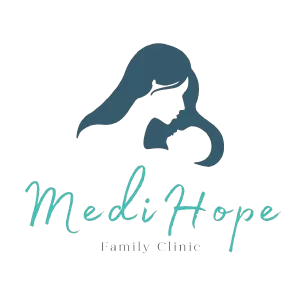As fertility challenges rise, many women turn to methods like IVF and egg freezing in hopes of starting families later in life. This blog explores the current state of fertility treatments, the science behind them, and the potential innovations that could reshape the future of conception.
Women's age significantly influences women's fertility, affect the number and quality of eggs available for conception. From birth, women possess one million number of eggs, which declines to just a few hundred by their late 40s. This decline, coupled with diminished egg quality, causes older women harder to get pregnant. As women age, the chances of successful conception decrease.
By the time a woman reaches 38, her chances of having a baby has decline a lot. Many women are now delaying childbirth for various reasons, including career and personal choices. As the average age women want to get their first baby increases, biological clock is becoming a big problem.
In Vitro Fertilization (IVF) has emerged as a primary solution for couples facing infertility. This process involves drug stimulation to force the ovaries to produce many eggs, which are then retrieved and fertilized in a laboratory setting. IVF offers hope to many, but it is not without its challenges.
Despite advancements, IVF success rates are still significantly impacted by a woman's age. Women over 35 experience lower success rates. IVF can be physically and emotionally taxing, with hormonal treatments and the retrieval process posing additional obstacles.
Success rates for IVF vary widely based on several factors, including age, health, and the quality of the fertility clinic. On average, women under 35 have a higher chance of success, while those over 40 may face considerably lower odds.
Egg freezing has gained popularity as a method for women to preserve their fertility. This process allows women to freeze their eggs at a younger age, providing an option for later use when they are ready to conceive. The egg freezing process involves ovarian stimulation, egg retrieval, and cryopreservation. Women often choose this route to maintain their reproductive options while focusing on personal or professional goals. However, the financial and emotional costs associated with egg freezing can be significant.
Ultimately, egg freezing can provide a sense of control over one's reproductive future, allowing women to make choices that align with their life circumstances. However, it's important to have realistic expectations about the success rates associated with thawing and using frozen eggs.
While egg freezing offers hope, it also carries risks and uncertainties. Success rates can fluctuate, and the emotional impact of the process can be significant. Women need to carefully consider this choice, balancing potential benefits with possible disappointments.
Egg freezing can be very expensive. It can cost over tens of thousands for several cycles. This high cost may stop many women from choosing this option, even if it has benefits. The emotional ups and downs of fertility treatments can also be tough and require good support from friends and family.
Women thinking about freezing their eggs should know the long-term effects. Freezing eggs does not guarantee that they will get pregnant later. It is important to understand how thawing and fertilization work to make a good choice.
The field of fertility technology is undergoing a lot of advancements, with the goal of enhancing success rates.
As research continues, there is hope for better solutions to age-related infertility. One exciting possibility is lab-grown eggs. This could help women who have trouble getting pregnant. It may change how we think about reproductive health, giving hope to those who have tried other options without success.
Going through IVF can be very emotional. Each cycle comes with hope and stress. Many women feel anxious, sad, or even grieve during the process. The hormones used in treatment can make these feelings stronger, leading to mood swings and emotional ups and downs.
Egg freezing has become a popular choice for women who want to keep their ability to have children. It is important to know the success rates of this process to make a good decision.
Studies show that women who freeze their eggs when they are in their late 20s to early 30s have the best chances of success. On average, about 70% of women who freeze their eggs before age 38 will later have a baby using those eggs.
While these numbers are encouraging, it's important to remember that success is not guaranteed. Women should think carefully about these factors when considering egg freezing as an option.
IVF, or In Vitro Fertilization, is a process where eggs are retrieved from a woman's ovaries and fertilized with sperm in a laboratory setting. The resulting embryos are then transferred to the uterus.
Success rates for IVF vary based on factors such as age and health. On average, women under 35 have the highest success rates, while those over 40 may face lower odds.
IVF carries risks, including multiple pregnancies, ovarian hyperstimulation syndrome (OHSS), and emotional distress. It's important for patients to discuss potential risks with their healthcare provider.
Egg freezing can be a valuable option for women looking to delay motherhood. However, it comes with costs and emotional considerations. Women should weigh the pros and cons based on their individual circumstances.
When selecting a fertility clinic, consider factors such as success rates, patient reviews, and the qualifications of the medical team. Researching and visiting multiple clinics can help ensure a good fit.
This article was created from the video Fertility crisis: why IVF isn't working by The Economist.

 Singapore
Singapore